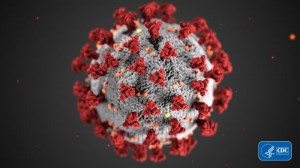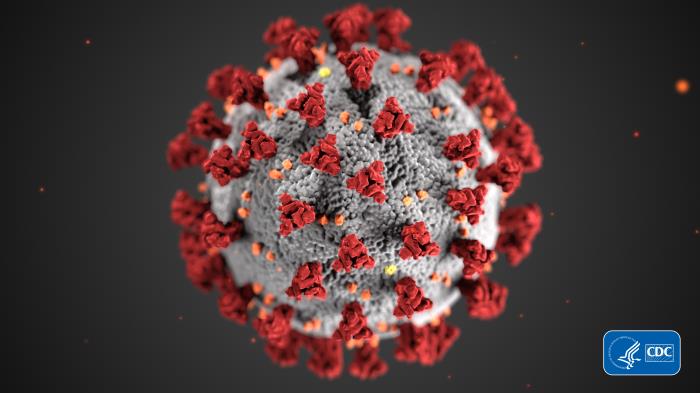 Today marks the end of the national COVID-19 public health emergency, but most tools – including vaccines, testing, and treatment – will remain available in Arizona.
Today marks the end of the national COVID-19 public health emergency, but most tools – including vaccines, testing, and treatment – will remain available in Arizona.
More than two years after the public health emergency was declared, and more than three years after the virus began its rapid spread in 2020, the U.S. Department of Health and Human Services (HHS) has declared an end to the national emergency as the number of cases, hospitalizations, and deaths have declined in recent months. The state’s COVID-19 emergency declaration ended more than a year ago, on March 30, 2022.
The number of cases and fatalities in Arizona have declined in recent months. In the week ending May 6, there were 2,608 newly reported cases and 34 newly reported deaths from COVID-19 statewide. During the pandemic, there have been 2.47 million cases of COVID-19 and 33,451 deaths.
Most Arizonans – about 76% – have been vaccinated, with nearly 14 million vaccine doses administered in our state. More than 22.4 million tests have been conducted during the pandemic, including more than 30,600 reported in the week ending May 6.
What does this declaration mean to Arizonans?
The virus remains a health threat in Arizona, and it’s important for everyone to remain current with vaccines against COVID-19. That’s especially true for those at the greatest risk of serious illness, including the elderly and those with compromised immune systems.
Data reporting
The Centers for Disease Control and Prevention (CDC) will stop reporting its COVID-19 Community Levels as a way to track the spread of the infection. HHS will also no longer require COVID-19 lab test reporting data from labs, which will affect the reporting of negative test results and impact the ability to calculate percent positivity for COVID-19 tests. COVID-19 (Novel coronavirus infection) positive test results and diagnoses are still reportable in Arizona by providers and laboratories pursuant to Arizona Administrative Code R9-6-202 and R9-6-204.
Hospital data reporting will continue as required by the CMS conditions of participation through April 30, 2024, but reporting will be reduced from the current daily reporting to weekly. Since reporting negative COVID-19 lab results is no longer required, the percent positivity data on the ADHS Laboratory Testing and Summary dashboards will not be updated after next Wednesday, May 17. Historical lab reporting data will continue to be available on the data dashboard along with the majority of COVID-19 data that will continue to be updated weekly.
Guidance
While the COVID-19 public health emergency is ending, you may still be at risk of COVID-19 infection. Older adults, people with certain medical conditions, and the immunocompromised are especially at risk of serious illness.
ADHS’ guidance on COVID-19 prevention remains the same:
- Stay up to date on COVID-19 vaccinations and boosters. Find a vaccine near you on the CDC Vaccine Finder.
- Check to see if you’re fully vaccinated and up to date on the CDC’s website.
- Get tested if you’re experiencing COVID-19 symptoms or were exposed to someone with COVID-19.
- Seek treatment if you test positive for COVID-19.
- Stay at home if you’re sick.
By taking these simple measures, you can lower your risk of contracting COVID-19, becoming seriously ill or hospitalized and developing Long COVID-19.
Testing
After the end of the public health emergency, insurance providers will no longer be required to cover testing costs or provide free COVID-19 tests. The updated emergency status may affect insurance coverage for both COVID-19 polymerase chain reaction (PCR) lab testing and over-the-counter test kits. Arizonans should check with their insurance to understand their current coverage. Find testing locations on the HHS website.
Vaccinations & treatment
Americans will continue to be able to get COVID-19 vaccines at no cost, due to the requirements of the CDC COVID-19 Vaccination Program Provider Agreement. People will also continue to be able to access COVID-19 treatment, such as Paxlovid and Lagevrio, at no cost.
Once the federal government is no longer purchasing or distributing COVID-19 vaccines and treatments, payment, coverage, and access may change. When that transition to the traditional health care market occurs, to protect families, the Administration has facilitated access to COVID-19 vaccines with no out-of-pocket costs for nearly all individuals and will continue to ensure that effective COVID-19 treatments, such as Paxlovid, are widely accessible.
Find the most up-to-date vaccine locations and treatment locations on our website.
Long COVID
HHS will continue to coordinate the response to the longer-term effects of COVID-19, including Long COVID and associated conditions. Read more about the progress HHS has made in responding to Long COVID and the actions it’s taking to address the needs of the growing population with Long COVID and associated conditions.
In Arizona, ADHS continues to partner with the University of Arizona to study and better understand the impact of Long COVID on Arizona residents. If you or a family member are interested in learning more about the project and potentially participating, please visit the CoVHORT site to find out more.
For more information, visit the Department of Health and Human Services’ End of the COVID-19 Public Health Emergency Fact Sheet. The Centers for Disease Control and Prevention also provides information about what the end of the public health emergency may mean for you.










